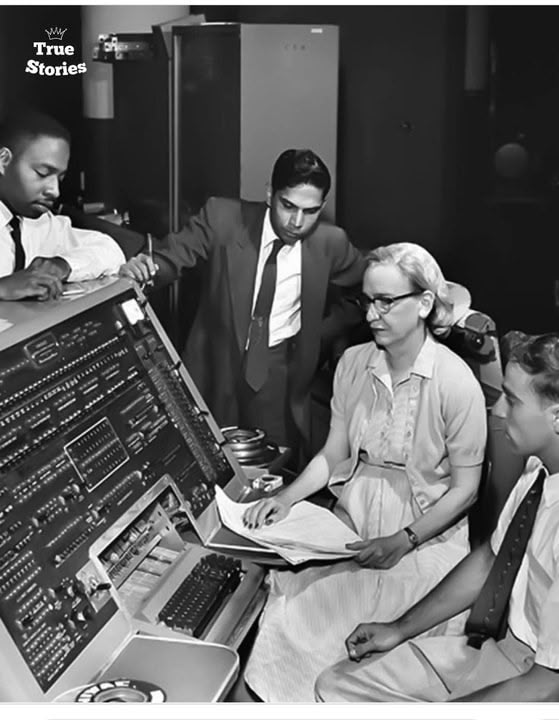Amazing Grace
Grace Hopper once dismantled a Navy computer with a screwdriver — just to prove it wasn’t “too complicated” for a woman to understand.
Then she rewired the entire future of computing.
She was 37 when she joined the U.S. Navy during World War II. Too old, too thin, and far too bold — they said no at first. She kept showing up. Eventually, they handed her a uniform and a problem: the Mark I computer. It filled an entire room, made strange clanking noises, and no one fully understood how it worked.
Hopper didn’t just understand it — she taught it to speak English.
At a time when programming meant punching holes in cards and speaking only in machine code, Grace Hopper believed computers should serve humans, not the other way around. She invented the first compiler — a translator that let people write instructions in plain English. That idea became COBOL, the first widely adopted programming language for business. It still powers banks and systems today.
She coined the term “debugging” after pulling a literal moth out of a malfunctioning machine. But it wasn’t a joke — it was a metaphor for her career. Find the glitch. Fix it. Move forward.
Grace Hopper stayed in the Navy until she was 79. She gave her final interview in uniform, sharp as ever, holding up a tiny piece of wire that represented a nanosecond. “This is how far light travels in one-billionth of a second,” she said. “Now you have no excuse to be slow.”
She was rebellious, relentless, and wildly ahead of her time. They called her “Amazing Grace.” She preferred Admiral.
Ever use a computer? You’re standing on her code.
Then she rewired the entire future of computing.
She was 37 when she joined the U.S. Navy during World War II. Too old, too thin, and far too bold — they said no at first. She kept showing up. Eventually, they handed her a uniform and a problem: the Mark I computer. It filled an entire room, made strange clanking noises, and no one fully understood how it worked.
Hopper didn’t just understand it — she taught it to speak English.
At a time when programming meant punching holes in cards and speaking only in machine code, Grace Hopper believed computers should serve humans, not the other way around. She invented the first compiler — a translator that let people write instructions in plain English. That idea became COBOL, the first widely adopted programming language for business. It still powers banks and systems today.
She coined the term “debugging” after pulling a literal moth out of a malfunctioning machine. But it wasn’t a joke — it was a metaphor for her career. Find the glitch. Fix it. Move forward.
Grace Hopper stayed in the Navy until she was 79. She gave her final interview in uniform, sharp as ever, holding up a tiny piece of wire that represented a nanosecond. “This is how far light travels in one-billionth of a second,” she said. “Now you have no excuse to be slow.”
She was rebellious, relentless, and wildly ahead of her time. They called her “Amazing Grace.” She preferred Admiral.
Ever use a computer? You’re standing on her code.





